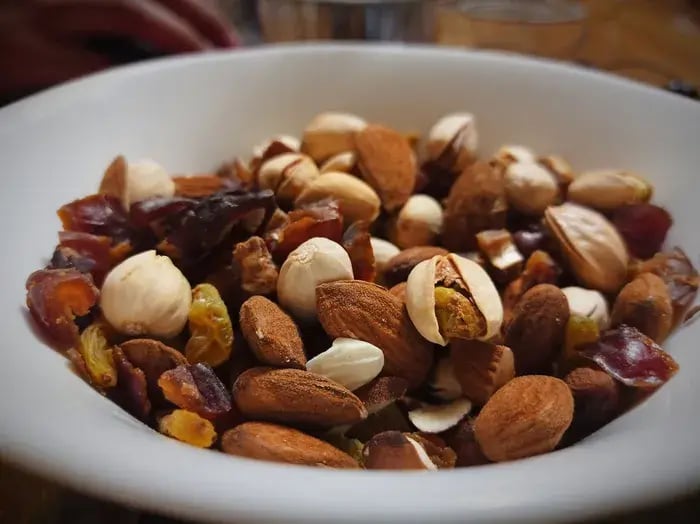- Sustained Energy Throughout the Day
- Supports Growth and Development
- Improves Concentration and Learning
- Complex Carbohydrates
- Proteins
- Fruits and Vegetables
- Healthy Fats
- Smart Snack Ideas for Kids
- Meal Timing
- Portion Control
- Lead by Example
- Make Meals Fun
- Limit Junk Food
Introduction
In today's life, parents often get worried about their child’s energy levels. Among school, their extracurricular activities and playtime schedule, kids are involved in some active work. But this continuous daily activity requires uninterrupted energy for daily activities and effective concentration. Still, irregular dietary habits or taking long intervals among meals cause fatigue with irritability along with lack of concentration.
The secret to your child having sustained energy is through regular, well-balanced meals and snacks. These helps maintain energy levels, support healthy growth, cognitive development, and overall well-being. Skipping meals or relying on junk food causes energy crashes, poor academic performance, and health issues over time. Parents can help their kids thrive both physically and mentally by understanding the importance of timing, nutrition, and portion control.
Why Regular Meals and Snacks Are Essential

Sustained Energy Throughout the Day
Children have smaller stomachs and faster metabolisms than adults, meaning they need to refuel more often. Regular meals and snacks prevent blood sugar drops that lead to tiredness, crankiness, and lack of focus. A combination of complex carbohydrates, proteins, and healthy fats ensures slow and steady energy release.
Supports Growth and Development
Kids are at a critical growth phase, and their bodies need constant nutrition to build and repair tissues. Regular meals rich in vitamins, minerals, and proteins provide the necessary fuel for their physical and mental development.
Improves Concentration and Learning
Proper nutrition straightaway influences the brain. Balanced breakfast is important to enhance memory, concentration and problem-solving skills. Snacking between study sessions in the form of nuts, seeds, or fruits helps to retain energy and performance.
Components of a Balanced Diet for Kids

Complex Carbohydrates
Good sources of complex carbohydrates are whole grains, oats, and sweet potatoes. They are broken down slowly to provide sustained energy, which makes children feel fuller and more energetic for longer.
Proteins
Eggs, lean meats, lentils, and dairy products like paneer or curd help build muscles and grow overall. Adding a protein source to each meal or snack helps repair tissues and satisfy hunger.
Fruits and Vegetables
Rich in vitamins, minerals, and antioxidants, fruits and vegetables build up the immune system and help with digestion. Colorful ones such as carrots and spinach, mangoes, and guavas make meals look attractive and delicious at the same time.
Healthy Fats
Nuts, seeds, and ghee are the sources of healthy fats that aid brain development. Adding them to meals will boost energy levels; for example, adding a dollop of ghee to chapatis, or sprinkling seeds over snacks.
Water is as essential as food. Hydration leads to tiredness and lack of focus, so water should be sufficient for your child during the day. Coconut water, buttermilk, or even homemade lemonade can be quite refreshing compared to plain water.
Smart Snack Ideas for Kids

Healthy snacking helps children avoid overeating between meals, such as lunch and dinner. Some easy and nutritious snack ideas:
Fruit and Nut Mix: A mix of almonds, raisins, and diced seasonal fruits gives instant energy.
Vegetable Sandwich: Whole-grain bread with cucumber, tomato, and mint chutney makes for a perfect snack.
Homemade Energy Bars: Oats, dates, nuts, and honey can be combined to make a nutrient-rich bar.
Stuffed Parathas: Prepare parathas filled with potato, paneer, or spinach and complement it with curd for an all-round healthy snack.
Idli or Dhokla: These steamed snacks are light, nutritious, and perfect for evening hunger pangs.
The Importance of Timing and Portion Control

Meal Timing
Establishing a meal routine helps regulate hunger and prevents overeating. Ensure kids have breakfast within an hour of waking up and space out meals and snacks every 3-4 hours. A structured eating schedule prevents energy dips and improves metabolism.
Portion Control
Overfeeding can cause lethargy and unhealthy weight gain. Teach children to listen to their hunger cues and serve age-appropriate portions. A balance between quantity and quality ensures they get the right nutrients without overloading their system.
How to Encourage Healthy Eating Habits
Lead by Example
Children often mimic their parents' eating habits. Eating balanced meals as a family sets a positive example.
Make Meals Fun
Involve children in grocery shopping and cooking. Sandwiches can be cut into various shapes using cookie cutters. Colorful fruit platters will make meals appealing.
Limit Junk Food
Do not allow the consumption of a lot of junk food, like chips, soft drinks, or processed snacks. Prepare homemade treats instead.
Deepali is a senior food and wellness writer with over a decade of experience in top media houses, crafting engaging narratives. She is a professional home baker and loves exploring food from every corner of the world to reading cookbooks. She believes a healthy lifestyle is a combination of both mental and physical fitness. Her goal always remains to keep moving, eating seasonal and practicing gratitude.
The views expressed are that of the expert alone.
The information provided in this content is for informational purposes only and should not be considered a substitute for professional medical advice, diagnosis, or treatment. Always seek the advice of your physician or another qualified healthcare provider before making any significant changes to your diet, exercise, or medication routines.
Reference
https://www.betterhealth.vic.gov.au/health/healthyliving/eating-tips-for-school-children
https://healtheries.co.nz/articles/the-importance-of-healthy-snacking-for-kids
















